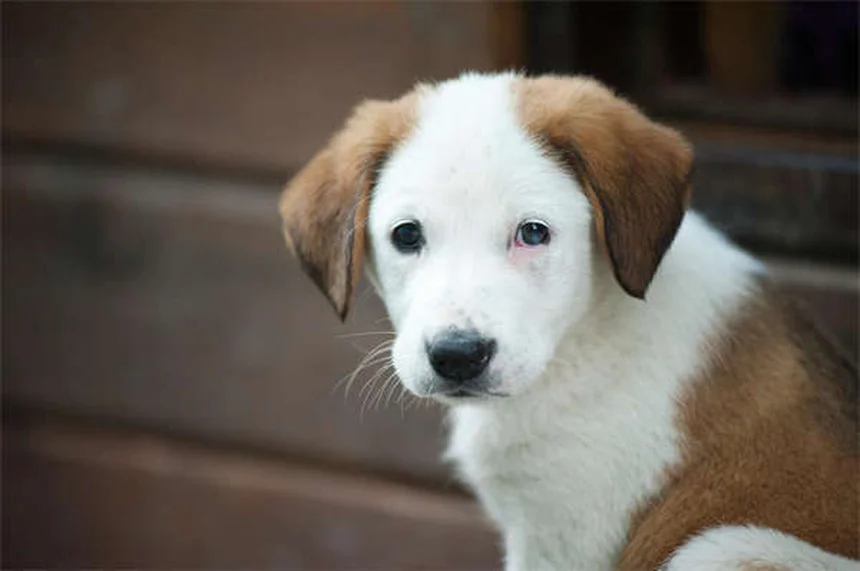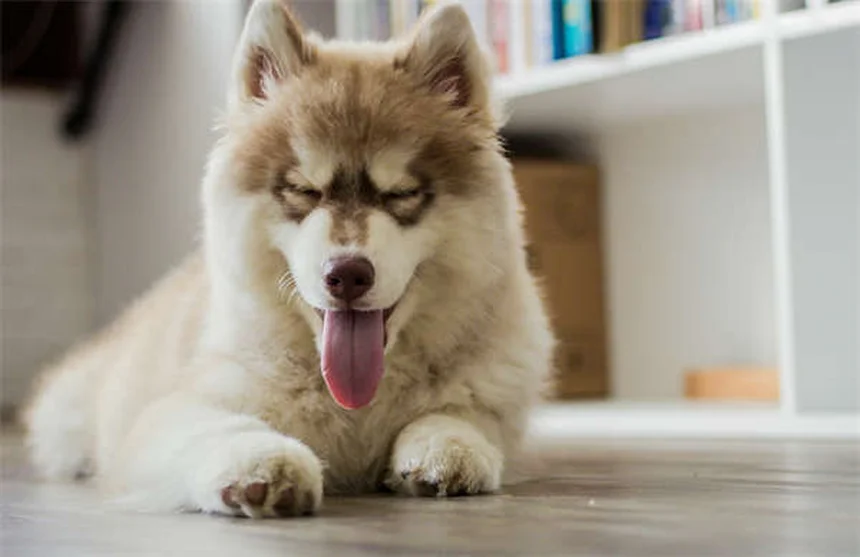Advertisement
Wondering how to care for your newborn puppy during those critical first weeks? The answer is simple yet crucial: those initial 7 weeks lay the foundation for your pup's health, behavior, and socialization. I've raised countless puppies over the years, and let me tell you - this period is like building a house; you want that foundation rock solid!During these early weeks, your puppy transforms from a helpless newborn into a curious explorer. We're talking about rapid physical development, crucial socialization milestones, and establishing those all-important health routines. I'll walk you through exactly what to expect week by week, because trust me, you don't want to miss these critical windows of opportunity.From my experience, most new puppy parents focus so much on the cuteness (and those adorable puppy breath smells!) that they overlook the developmental signs that everything's on track. That's why we're going to break it down together - I'll show you what normal looks like, when to be concerned, and how to set your pup up for a lifetime of health and happiness.
E.g. :5 Warning Signs Your Dog Has a Perianal Fistula (And What to Do)
- 1、Welcome to Puppy Parenthood!
- 2、The Awakening: Weeks 2-4
- 3、Little Personalities Emerge: Weeks 4-7
- 4、Common Questions Answered
- 5、Health Red Flags
- 6、The Magic of Puppy Socialization
- 7、The Science Behind Puppy Development
- 8、Puppy Nutrition Beyond the Basics
- 9、Puppy-Proofing Your Home Like a Pro
- 10、The Joy of Puppy Training Foundations
- 11、FAQs
Welcome to Puppy Parenthood!
Congratulations on your new furry bundle of joy! Those first seven weeks with a puppy are like watching a tiny superhero discover their powers - every day brings something new. Let me walk you through this incredible journey.
The Newborn Phase: Week 0-2
Picture this: your puppy enters the world weighing about as much as a banana (some toy breeds are even lighter!). Daily weight checks are crucial - we're looking for steady gains like a rising stock market. Here's what to expect:
| Milestone | Timing | What to Watch For |
|---|---|---|
| Umbilical cord falls off | Day 3 | Check for redness or swelling |
| Front leg strength | Days 5-6 | Little push-ups begin! |
| Hind leg strength | Days 14-16 | Wobbly standing attempts |
Did you know newborn pups can't even shiver to warm themselves? That's why they pile together like furry pancakes. Keep their area at about 85°F - think "warm spring day" temperature.
Feeding Your Little Dynamo
Mom's milk is liquid gold, packed with antibodies and nutrients. Colostrum, that first special milk, is like nature's vaccine - it provides 95% of puppy immunity in the first 24 hours. Here's a fun fact: puppy milk changes composition weekly, adapting to your pup's growing needs!
If you're bottle-feeding, imagine you're a barista crafting the perfect latte - the milk should be body temperature (about 100°F) and the flow just right. Too fast and they might aspirate, too slow and they'll get frustrated.
The Awakening: Weeks 2-4
 Photos provided by pixabay
Photos provided by pixabay
Senses Come Alive
Ever seen a puppy discover their paws? It's like watching someone see magic for the first time! Around day 10-14, those sealed eyelids finally open, revealing beautiful blue-gray eyes that will change color later. Their vision starts blurry - think "looking through wax paper" - but improves daily.
Hearing kicks in around the same time. Pro tip: start introducing gentle sounds now - the blender, doorbell, TV. Make it positive with treats or playtime so they associate noises with good things.
Social Butterflies in Training
This is when your puppy transforms from a sleepy potato into a curious explorer. Positive human interaction now prevents fear later. Try this: gently handle paws (future nail trims!), peek in ears (vet visits!), and rub bellies (bonding time!).
Did you know puppies learn bite inhibition from siblings? When one bites too hard, the other yelps and stops playing. You can mimic this with a high-pitched "ouch!" when those needle teeth pinch.
Little Personalities Emerge: Weeks 4-7
Playtime University
Watch closely - those clumsy play fights are actually important lessons! Puppies learn:
- How hard is too hard when biting
- Reading other dogs' body language
- Taking turns (sort of!)
Ever seen a puppy "play bow"? Front end down, butt in the air - it's their way of saying "Let's be friends!" Encourage this by getting down on their level during play.
 Photos provided by pixabay
Photos provided by pixabay
Senses Come Alive
Time for those important shots! Think of vaccines like a superhero training montage - preparing their immune system for future battles. The core vaccines (DAPP) typically start at 6 weeks, with boosters every 2-4 weeks until 16 weeks old.
Here's a vaccination schedule example:
| Age | Vaccine | Notes |
|---|---|---|
| 6 weeks | DAPP #1 | First round of protection |
| 9 weeks | DAPP #2 | Booster shot |
| 12 weeks | DAPP #3 | Final puppy booster |
Common Questions Answered
When should I start potty training?
Believe it or not, you can begin laying the foundation now! Puppies naturally don't want to soil their sleeping area. Use this instinct by:
- Creating a consistent potty spot
- Taking them out after every nap and meal
- Praising like they just won the lottery when they go outside
How much sleep does a puppy need?
More than a teenager on summer break! Newborns sleep about 22 hours daily (lucky them). By 7 weeks, they'll still need 18-20 hours. Watch for overtired pups - they get bitey and hyper, like toddlers avoiding naps.
Health Red Flags
While most puppies thrive with proper care, watch for these warning signs:
- Not gaining weight: Should increase by 5-10% daily
- Constant crying: Could mean hunger, cold, or illness
- Green or bloody stool: Immediate vet attention needed
Remember, you're not alone in this puppy adventure! Your veterinarian is your best ally - don't hesitate to call with questions, no matter how small they seem. After all, raising a happy, healthy puppy is one of life's greatest joys. Now go enjoy those puppy kisses - they grow up faster than you think!
The Magic of Puppy Socialization
 Photos provided by pixabay
Photos provided by pixabay
Senses Come Alive
You know how first impressions last forever? That's exactly how puppy brains work during these critical weeks. Between 3-14 weeks, your pup's brain is like a sponge soaking up experiences that'll shape their personality forever. Miss this window, and you might end up with a dog who's terrified of bicycles or barks at every passing umbrella.
Here's a fun experiment to try: introduce your puppy to at least five new surfaces this week - maybe a wobbly board, a metal grate, some bubble wrap. Watch how they react! Some pups will charge forward like little explorers, while others might need gentle encouragement. Both reactions are normal, but the key is making every new experience positive with treats and praise.
Creating a Puppy Socialization Checklist
Think of this as your puppy's bucket list before they turn 16 weeks old. We're not just talking about meeting other dogs (though that's important too!). Your pup should experience:
- Different floor textures (tile, carpet, grass, gravel)
- Various household sounds (vacuum, doorbell, children laughing)
- All sorts of people (tall, short, wearing hats, using canes)
Ever wonder why some dogs go nuts during thunderstorms? Often it's because they never experienced rain sounds as puppies. Set up a playlist with nature sounds and play it softly during nap time - start quiet and gradually increase volume over weeks.
The Science Behind Puppy Development
Brain Growth Spurts You Can Actually See
Puppy brains grow faster than their bodies during these early weeks. By week 7, their brain is already about 80% developed! That's why training basics can start surprisingly early. Try this: say your pup's name, and when they look at you, immediately reward with a treat. You're literally wiring their brain to pay attention to you.
Here's something fascinating - puppies have sleep patterns similar to human babies, with lots of REM sleep when they twitch and whimper. That's when their brains are processing all the day's new experiences. Never wake a sleeping puppy unless absolutely necessary - you'd be interrupting their "learning time"!
The Emotional Development Timeline
Puppies go through emotional milestones just like human babies do. Around week 5, they start showing clear preferences - maybe they love belly rubs but hate having their paws touched. This is when you'll see the first signs of their adult personality emerging.
| Week | Emotional Milestone | What It Means for You |
|---|---|---|
| 3-4 | First signs of curiosity | Time to introduce new (safe) objects |
| 5-6 | Clear play preferences emerge | Notice if they're more into chasing or tugging |
| 7-8 | Attachment to humans strengthens | Separation anxiety prevention starts now |
Did you know puppies can experience something similar to the "terrible twos"? Around week 7-8, many go through a fear period where previously fine things suddenly seem scary. If your pup suddenly balks at the trash can they've seen daily, stay calm and make positive associations with treats.
Puppy Nutrition Beyond the Basics
The Hidden World of Puppy Food Formulas
Not all puppy foods are created equal, and the differences go way beyond price tags. Large breed puppies actually need less calcium than small breeds to prevent joint issues - who knew? The kibble size matters too - those tiny teeth need appropriately sized pieces they can actually chew.
Here's a pro tip: check the guaranteed analysis on the bag, not just the marketing claims. You're looking for:
- At least 22% protein (30% is better for active breeds)
- About 8-10% fat (more for high-energy breeds)
- DHA listed in ingredients (great for brain development)
Transitioning Foods Without Tummy Trouble
Ever switched your puppy's food too fast and ended up with... unpleasant results? Their digestive systems are super sensitive. The golden rule is to transition over 7-10 days, mixing increasing amounts of the new food with the old. But here's a trick most people don't know - adding a spoonful of canned pumpkin (not pie filling!) can help ease the transition.
How often should puppies eat? Newborns need meals every 2-3 hours around the clock (yes, even at 3 AM). By 7 weeks, you can usually drop to 4 meals a day. Watch for the "zoomies" after eating - that sudden burst of energy means the food is working!
Puppy-Proofing Your Home Like a Pro
Danger Zones You Might Not Have Considered
You've probably heard about keeping chocolate away from dogs, but did you know about the hidden dangers in your laundry room? Dryer sheets and fabric softeners contain chemicals that can be toxic if chewed. And those innocent-looking houseplants? Many common ones like lilies and philodendrons are poisonous to pups.
Here's a quick safety checklist:
- Electrical cords (puppies love to chew these)
- Toilet bowl cleaners (keep lids down)
- Small objects they could swallow (socks are a favorite)
Creating Safe Exploration Spaces
Puppies need to explore - it's how they learn about the world. Instead of constantly saying "no," set up puppy-safe zones where they can satisfy their curiosity without danger. Use baby gates to block off unsafe areas, but make sure they're sturdy - some determined pups can knock over flimsy gates.
Ever thought about creating a "puppy playground"? Scatter different textured toys in a confined area, add some treat-dispensing puzzles, and you've got an enrichment zone that'll keep them busy (and out of trouble) for hours. Rotate the toys weekly to keep things interesting!
The Joy of Puppy Training Foundations
Building Communication Before Commands
Before you teach "sit" or "stay," there's something more important - teaching your puppy that paying attention to you is rewarding. Try this simple game: whenever your pup voluntarily looks at you, say "yes!" and give a treat. You're building the foundation for all future training.
Did you know puppies can learn their names in just a few days? Say their name in a happy voice, and when they look, immediately reward. Soon they'll be responding like they've known it forever!
The Power of Short, Fun Sessions
Puppy attention spans are shorter than a goldfish's - about 5 minutes max for training. But here's the secret: several super-short sessions throughout the day work better than one long one. Keep treats small (pea-sized) and enthusiasm high. If you're not having fun, your puppy isn't either!
Ever tried training before meals? A slightly hungry pup is more motivated to work for treats. Just don't overdo it - we're talking about using part of their regular meal as training rewards, not withholding food.
E.g. :First week with your puppy? : r/puppy101
FAQs
Q: When do newborn puppies open their eyes?
A: Those precious puppy peepers typically open between 10-14 days old, but don't expect perfect vision right away! Here's what I've observed: at first, their vision is blurry (think looking through wax paper) and their eyes appear blue-gray. The cornea might look cloudy initially but clears up by week 4. I always tell new puppy parents - resist the urge to help open those eyelids! They'll open naturally when ready. In the meantime, keep their sleeping area dimly lit to protect those developing eyes.
Q: How often should a newborn puppy eat?
A: Feeding frequency changes dramatically during these first weeks. In week 1, expect 8-10 nursing sessions daily (every 2-3 hours). By week 3, this drops to about 4 times daily. Here's my pro tip: watch for the "milk coma" - that blissful, milk-drunk state where they flop over with a full belly. If you're bottle-feeding, remember - smaller, more frequent meals are better than large volumes at once. And always keep the formula at body temperature (about 100°F) for optimal digestion.
Q: When should puppies get their first shots?
A: The vaccination journey typically begins at 6 weeks old with the DAPP vaccine (protecting against distemper, adenovirus, parainfluenza, and parvovirus). From my vet visits, I've learned this is just the start - boosters come every 2-4 weeks until about 16 weeks old. But here's something many owners don't realize: those maternal antibodies from mom's milk can actually interfere with early vaccinations. That's why we do multiple rounds - to catch that window when mom's protection fades and the vaccines can take full effect.
Q: How can I tell if my newborn puppy is healthy?
A: Daily weight checks are your best indicator - healthy pups gain 5-10% of their body weight daily. I always recommend keeping a simple log. Other green flags: strong suckling reflex, pink gums, and consistent sleep/wake cycles. Red flags? Constant crying (could mean hunger or illness), green/bloody stool, or failure to gain weight. One trick I've learned: gently pinch the skin at the scruff - if it snaps back quickly, hydration is good; if it tents, they might be dehydrated.
Q: When can puppies start socializing?
A: The critical socialization window opens at 3 weeks and closes around 12-14 weeks. Start slow - at 3-4 weeks, introduce gentle handling and new textures (different floor surfaces work great). By 5 weeks, add mild household sounds (TV, vacuum at a distance). Here's my golden rule: make every new experience positive with treats or play. I've seen too many dogs develop fears because owners waited too long to socialize. Remember - well-socialized puppies become confident adult dogs!







